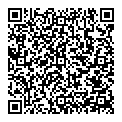★Bridge★No.13 P.R.モロウ先生 その①
学生さんと先生を繋ぐ連続企画★Bridge★、今回の先生は・・・
外国語学部 P.R.モロウ 先生です。
今回は、数回に渡って、先生の思いをご紹介★
(青字は日本語訳です。)
■■■ どんな思いをもって、授業(ゼミ)に臨まれていますか? ■■■
Each student is different. Our students are studying English so I hope that each student finds something that they can connect with in English, something that they can be interested in, so that they can enjoy studying English. If they enjoy studying English, they can make more progress.They can do better. They are many ways to be succsessful about studying English, I think. I hope that each student can discover the right way for him or her.
Some students, for example, are interested in music or in films and those students really learn a lot by watching one film very often, or by listening to music they get a good sense about the rhythm of English or the pronunciation of English. So, I would like to encourage my students to find their own way to study English to be successful learners.
学生たちは、皆一人一人違います。学生は英語を勉強していますので、私は、それぞれの学生たちが何かしら英語と関連していることや、興味をもてることを見つけてくれたらいいと思っています。そうすれば、英語を楽しく学ぶことができますから。
英語を楽しく学ぶことができれば、英語学習をより進めることができます。
英語学習を成功させる方法は色々あるので、それぞれの学生が、各々に合った方法を見つけることができると良いと思います。
例えば、ある学生は音楽や映画に興味があって、そういった学生というのは、1本の映画から本当に多くのことを学びとることがよくありますし、音楽を聞くことで英語のリズムや発音に関する良いセンスを身に付けることができるでしょう。
ですから私は、学生たちが彼ら自身に合った英語学習を見つけ、学習者として成功するように励ましたいのです。
In my ZEMI(seminar) for example, I teach Sociolinguistics and we study topics like the relationship between language and culture and women's language and men's language and how they are different in English or in Japanese. Also, we study American culture. Sometimes we study language topics and sometimes we study culture-related.
例えば、私のゼミでは社会言語学を教えており、言語と文化の関係や女言葉・男言葉が英語や日本語でどのように異なるか、といったトピックスについて研究します。
また、アメリカの文化を研究します。ある時は言語的トピックスを、またある時は文化に関係することを研究するといった具合です。
To keep students interested, I try to choose topics which I think are interesting for the students but I also want to do something serious, I want students to learn about the world...for example now in the ZEMI we've been studying about American history. Students don't know much about America although they are interested in.
興味を持ち続けてもらうために、学生たちにとって面白いのではと思う話題を選ぶようにしています。けれども、骨のある内容ということも必要です。学生には世界について学んでもらいたいと思っています。・・・たとえば、今、ゼミでは、アメリカの歴史について勉強しているんです。学生は、興味はあってもアメリカのことをよく知らないので。
We have studied about Native Americans, Columbus coming to America, the early colonies, American revolution, how the settlers moved from the east coast to the west coast, the north and the south, Blacks, the situation in America before Civil War and so on. I hope that students come to a better understanding of America or deeper understanding of American culture through American history. We also talked about the structure of the American government. I think this is something you need about to know if you want to listen to the news, or read the newspaper because they are always talking about these things.
私達は、ネイティブアメリカンのことやアメリカ大陸にコロンブスが来たこと、初期植民地やアメリカ革命、どのよう東海岸から西海岸や北部・南部に入植していったか、黒人や市民革命以前のアメリカの状況など・・・こんなことを勉強しているのです。
アメリカをより理解する一助となったり、アメリカの歴史のより深い理解に少しでも繋がったらいいと思います。アメリカ政府の構図なんかも話し合います。こういったことは、ニュースや新聞を見聞きする際に必要な知識です。話題に上るのはこういったことですからね。
I also have some video series about the story of English which I use to let students connect with English. There are many topics in these videos, and they can be quite difficult so I have a Japanese version so students can listen to it in Japanese. In this type of study, I'm trying to teach content or ideas using English. It's not really an English class but we are using English to learn other things, so it becomes difficult. But in order to make it easier, I try to choose books which are written in English and translated into Japanese. In the Sociolinguistics class, I give the students Japanese and English versions of the book. I explain things in English and I encourage them to read them in English. But the material is difficult. University students in America use the same book. But if they read in Japanese, I think they can understand. この授業は難しいと思いますが、だんだん分かってくるので、学生にとっても、自信につながると思います。
学生たちに、英語と結びつけて考えさせるために、英語の物語のビデオシリーズを使うこともあります。
このビデオには色々な話題があってとても難しいですので、学生たちが日本語でも聞けるように日本語版を手元に用意しておくこともあります。このタイプの学習では、内容や考え方を、英語を使って教えるようにしています。英語のクラスではないですけれども、英語を使って他の物事を学ぶので、難易度が上がります。分かりやすくするために、英語と、日本語訳の両方が有る本を選ぶようにしています。社会言語学のクラスでも同じで、学生には英語版と日本語版両方の本を渡して、私が英語で説明し、学生には英語で読むように勧めています。この教材は難しく、アメリカの大学生も同じものを使っているんです。でも、日本語で読めれば、理解できると思います。
In English classes, we often do pair-work to get more used to speaking to each other and to feel more comfortable. Many of our students go to study abroad. They talk to people there and they improve their English and they learn to have some confidence about communicating in English. So I'm always happy when the students go abroad.
英語のクラスでは、よくペアワークをします。お互いに話すことに慣れ、より快適にするためです。
多くの学生が留学に行きますよね。彼らは、他の人と話すことで英語を上達させ、英語でコミュニケーションするということに、自信を持つことを学ぶのです。なので、私は、学生が海外に行くことはいいと思いますね。
続きは、次回です★★★
チョッパー子
